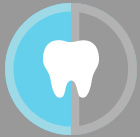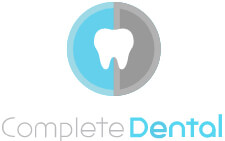Do you have a toothache that won’t go away? If the tooth is badly decayed, damaged or infected, extraction may be the only option. But “does tooth extraction hurt”? Well, you can find out everything you need to know right here.
Read along for a short guide about what to expect during and after tooth extraction. From the tooth extraction procedure to our pain management protocols to keep you relaxed during treatment to aftercare guidelines to relieve you of discomfort when the dental anaesthesia has worn off. But first, let’s discuss when you should get a tooth extraction.
What are the reasons to extract a tooth?
Permanent teeth are intended to last a lifetime, but tooth extraction may be required in the following situations:
- A viable solution to periodontal disease
- Irreparable damage to a tooth caused by severe decay
- To eliminate tooth crowding
- To release an impacted tooth (typically a wisdom tooth)
- Following trauma or injury
Some patients may also need tooth extraction as a pre-procedure for their dental braces. This will allow room for the teeth to shift to their proper places.
At Complete Dental, we use digital X-rays to assess the affected area and determine factors that may affect tooth removal. At this time, your dentist can identify if the procedure is straightforward or whether surgical tooth extraction is required.
Pain management methods for tooth extraction
We know the thought of getting your tooth removed sounds painful, but trust us when we say that tooth extraction does not hurt initially, although some discomfort is inevitable. Complete Dental will make every effort to ensure tooth extractions are a short, painless procedure.
- Our dentist will take the time to explain the procedure so you know what to expect. By being fully informed, you will feel less an about the treatment and more able to relax.
- If you have a dental infection, you will be prescribed antibiotics to ease any swelling and clear the infection prior to tooth extraction.
- On the day of your tooth removal, our dentist will administer local anaesthesia to numb the mouth, so you don’t feel any pain, although you may feel some pressure as the tooth is pulled.
So what happens during tooth extraction?
Tooth extractions vary in the level of difficulty. Some can be very simple, while others need meticulous planning, particularly impacted wisdom teeth.
- Local anaesthesia
Our dentist will anaesthetise the area of your mouth to control pain and keep you relaxed. It’s essential for the tooth and the surrounding bone and gums to be numb for maximum comfort during the tooth extraction.
- Tooth extraction
With regular tooth extractions, you will feel back-and-forth pressure as the dentist loosens the tooth from the socket. Other than that, discomfort is kept to a bare minimum. Some simple tooth extractions happen so quickly that you won’t even feel much!
Meanwhile, surgical tooth extractions are a little more complicated. A small incision will be made in the gums to expose the tooth and bone. Any bone blocking the tooth root will be removed, and the tooth may be cut into small pieces to aid its removal. Pain is still well-managed with the anaesthetic, but you may feel pressure on your jaw as the dentist removes your tooth. An impacted wisdom tooth can be tricky to remove, and often patients feel soreness on their jaws because of the location at the very back of the mouth.

After Tooth Extraction: Pain Relief and Recovery Tips
Does it hurt after tooth extraction? Simple tooth extractions present bearable to almost no pain after the procedure. Some patients can return to their usual routine after a day! Meanwhile, complicated surgical extractions may manifest with pain on the extraction site and swelling on the gums and face.
To lessen the pain after tooth extraction, the most important advice you should take seriously is to rest. Resting will help your body focus on a speedy and well recovery. Other general guidelines you should follow include:
- Take pain medications and antibiotics as prescribed
- Bite on a gauze to control bleeding
- Apply an ice bag directly to the area of swelling
- Avoid dislodging the blood clot that will naturally form on the extraction site
- Partake in a soft diet
- Limit activity and avoid strenuous work
- Do not smoke
- Practice good oral hygiene but avoid the open wound until it has completely healed
Ready for your Tooth Extraction?
If you are experiencing any of the signs or symptoms mentioned above, call today for a consultation! While yes, tooth extraction does hurt after the event, in most cases, it can be managed with over the counter painkillers and usually subsides within a few days
You can trust that our team of dentists and friendly staff at Complete Dental assures your safety and comfort during and after the procedure. Call us today in our Coorparoo clinic on (07) 3801 6503 to find out and how we can help!
Note: Any surgical or invasive procedure carries risks. Before proceeding, you should seek a second opinion from an appropriately qualified health practitioner.
References
Orthodontics. Part 8: Extractions in Orthodontics
https://pubmed.ncbi.nlm.nih.gov/15039723/
Psychological Factors and Perceptions of Pain Associated with Dental Treatment
https://pubmed.ncbi.nlm.nih.gov/12000356/
Local Anesthetics: Review of Pharmacological Considerations
https://www.ncbi.nlm.nih.gov/pmc/articles/PMC3403589/
Types of Dental Extraction
https://www.news-medical.net/health/Types-of-Dental-Extraction.aspx
Wisdom Teeth Removal Recovery: Timeline, Healing, and Care
https://www.medicalnewstoday.com/articles/321657









